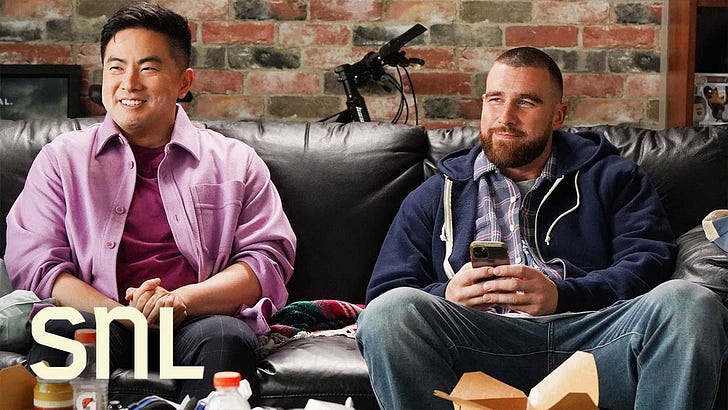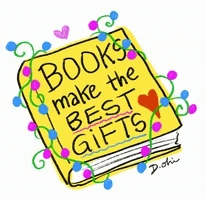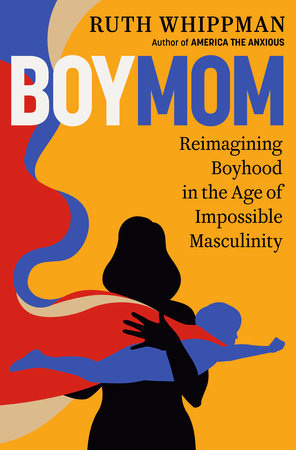If you’re looking for a Father’s Day present or just trying to fight the patriarchy one story of male vulnerability at a time, I am in love with Lucas Mann’s new book, Attachments: Essays on Fatherhood and Other Performances, so much so that I’m hosting a book club and negotiated a discount code with his publisher. Get the info here.
A few weeks ago, I published a personal essay in The Cut, Where Have All My Guy Friends Gone?? about the social constrictions of life after hetero-partnership and kids. It’s something I’d been thinking about for years (and it took me months to write) — how could all of these rich friendships with men I’d developed my whole life seem to be fizzling out, just as I was making even deeper, more exciting connections with so many women?
Maybe it’s all just a cipher for not living closer to my brothers, but I felt lonely and confused, and wondered if any else was having the same experience. As it turned out, they were! I’ve never gotten a response like this to a writing topic — when I asked female friends if they had feelings about their male friendships approaching middle-age, they couldn’t shut up (thankfully). People sent me DMs, voice notes, long involved emails. Not everyone had had the same path, but almost everyone felt that some witchery was afoot in our social worlds — usually very progressive spaces in many ways, where marriages were open and mushrooms were therapeutic and homes could be cluttered without judgement etc, but friendships between coupled, cis, hetero men and women were explicitly and implicitly avoided.
People often think (and I understand how this happens when someone’s name is in a publication, it can elevate them to some kind of celebrity even though they probably made $20 an hour working on it) that personal essayists are invulnerable, get a kick out of airing their dirty laundry. But it’s pretty overwhelming to put a personal essay out there, even when the “person” in it is, of course, a slightly edited version of you. I sent a lot of sheepish texts and made some awkward calls (most of these interactions ended with love and connection) to clear this content, I had to change some identifying information about a source hours after it went up because I’d misunderstood her comfort level, I would not read the comments and cherished every positive response I got.
There are so many threads spiraling off of this topic, some of which I wrote about but didn’t make it into the final draft (how men feel, how workplace relationships complicate this phenomenon, this very funny and maybe sad SNL sketch), and others that I knew weren’t for really for another piece.
A friend asked, after reading it, “but do the guys miss US??!!” The men I spoke to, who didn’t get a voice in the article, said, well, yes. Many guys told me that their female friends were their favorite, most important friends. They lamented that it was too weird to make new girl friends in many situations. For example, if they met a guy and then liked his wife better, they felt there was nothing they could do. Steven told me that most of his friends were women, which probably had to do with his job as a teacher. But he also shared some beautiful intentionality behind that — while so many of us complained passively about our gender-segregated parent-friend circles, Steven and his wife had agreed to resist. When they noticed that the hangs they hosted ended up with all of the husbands in the kitchen drinking beer and the wives in the living room (maybe drinking novelty-sized glasses of white wine?), they made a point to mix it up. “We’re not gonna do that” he told his wife.
I can’t think about men these days without thinking about
’s stunning new book, Boymom, which I wrote about for Romper (We’re also putting out a great conversation with her Monday over on ). Whippman spoke to lots of young men, and loneliness was a definite theme. If men can’t be friends with women, it’s even more of a bummer that many of them wish their male friendships were deeper and more satisfying. I know many men with beautiful, rich friendships with people of all genders. And yet the population level issue persists.One piece of coverage of Boymom criticized it for being out-of-date gender essentialism, but one of the many lovely things about the book is that Whippman takes that criticism of her premise on herself (which she also shares). Whippman’s central thesis is not that boys and girls are fundamentally different, it’s that whatever combination of brain chemistry and culture swirls to create the construct of “gender” does a really shitty job with cisgendered boys and men. For all of the wonderful deconstructions of gender we’ve been attempting in the last decade, for all of the kids who, at most playgrounds across the country, I guarantee you that 85% of the boys and girls are playing separately, engaging in different pursuits, and learning different lessons, accordingly. This goes back to the power of cross-gendered friendship, and to the relief I felt when I read Boymom — she is seeing the culture for what it is, not what it aspires to be. It can be true both that we have complicated something like ascribed gender expectations in a positive way, and then many people are still suffering from the ways that they harm everyone. With hetero marriages, for example, my little cultural niche has seen an explosion of change around what roles men and women play, my own marriage has evolved, and yet, most women I know who are married to men continue to do the bulk of the childcare and emotional labor. To say that this isn’t an issue worth exploring further, just like saying that the construction of a cis-gendered male in our society isn’t still problematic and sad, is to ignore reality in favor of a form of liberal delusion, akin to color-blindness.
As
, one such man who seems to have lots of great friendships (he is one of my guy friends who is both new and kept up!) observed on my podcast, Mother of it All this week, in the context of the Abba jukebox musical Mamma Mia, these kinds of relationships are so hard for so many men, that the three dads of the movie have to be sent to a Greek isle through a ruse in order to connect with one another.I have a whole different essay coming out in Romper this week about my husband’s friends. It makes me so so sad how many men are just living their lives without anyone but their romantic partners to be vulnerable with, to be loved by. It makes me so happy when men find one another and get a little vulnerable. My dad has been part of a men’s group for years — they do stuff like run marathons together but also they do what amounts to A LOT of group therapy and even though he is a therapist himself and never far from emotional processing, this group is vital to him.
Is the whole essay, the whole issue of cross-gendered friendships, as one commenter put it, “straight people problems?” Yes, almost definitely. As I talked about in the piece, the sanctification of marriage (usually the heterosexual kind) and the gender expectations people feel they need to ascribe to are majorly to blame. And these forces create problems for all of us.
My favorite thing about writing this piece were the stories I heard, before and after. The wise
wrote about “the moms hanging with the moms,” and might just grace us with her own extended take on the matter. The sports journalist Mina Kimes spoke about it on Pablo Torre’s podcast, and it led to a fascinating conversation about single gender schools and the shorthands we look for to make making friends easier. Many people wrote to me and told me they’d had friends fall away like I had. Some wanted to call out the friendships that had lasted. Most delightful were the stories of people deciding to rekindle their cross-gendered friendships — a guy friend told me one of his girl friends he hadn’t spoken to invited him out for a drink and was like “I read this article…” That makes me so happy, dulls the vulnerability hangover from writing something like this.I am eagerly awaiting
’s new book on friendship and continue to try and ask myself the question Rhaina Cohen uncovered in The Other Significant Others, “what is the fullest expression of this friendship?”And I just finished the beautiful Real Americans by Rachel Khong, am still mulling over this piece on what we talk about when we talk about children from Jay Caspian Kang (thanks Katherine Moos for sending it to me), and am trying to revise a book outline.
What’s on your mind as the season changes? Don’t be shy!
Also, this:
My Celtics will almost definitely be crowned the champions of the NBA season, as early as tonight. If that makes you roll your eyes, remember that THESE SPECIFIC GUYS have never won before, that not all Boston fans are toxic, and watch this:
 Tiktok failed to load.
Tiktok failed to load.Enable 3rd party cookies or use another browser









thank you so much Sarah- you are truly the best.
Thanks for this. Helps break out of the When Harry Met Sally box. Amazing the power that movie has over the imagination. Both to extend and limit it.